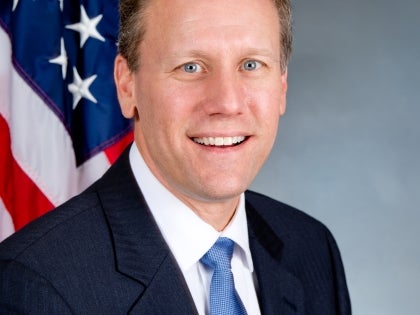
Valesky Bill Would Reduce Health Insurance Costs For State's Small Businesses

Senator David Valesky, joined by Senate Democratic Leader David Paterson and Senators Jeff Klein and Kevin Parker, announced a proposal that would reduce health insurance costs for New York’s small businesses. The proposal calls for the creation of a small business insurance pool, which would allow small firms to group together and buy insurance at a lower rate through a State-negotiated insurance plan.
They were joined by Mark Jaffe, president and CEO of the Greater New York Chamber of Commerce and Ronald Deutsch, executive director of MicroBiz NY, who spoke of the need to provide assistance to the State’s small businesses.
"This proposal would level the playing field for small businesses and their employees, who are so crucial to the fiscal health of our State," Valesky said. "More than 97 percent of New York’s firms employ fewer than 100 workers. We rely on our small businesses and need them to be healthy and productive."
A majority of working Americans secure insurance through their employers, who pay for 73 percent of annual premiums, on average. However, because of rapidly rising rates, insurance costs are being transferred to workers and fewer companies are offering employer-sponsored health insurance.
Rising rates have also caused lower wage growth, because employers are paying more for health insurance premiums, and lower employment levels, a result of the higher costs associated with maintaining a healthy workforce.
"In the end, higher health insurance rates stifle job growth and economic development," Valesky said, "besides causing an overall decline in health insurance coverage."
Mark Jaffe, president and chief executive officer of the Greater New York Chamber of Commerce, said that because of a steady stream of layoffs, many businesspeople are being compelled to start their own businesses. "Many sole proprietors have a very difficult time obtaining affordable insurance and some are forced to rely on emergency room services. It will be less expensive for all of us if they are able to obtain insurance for themselves and their families."
Ron Deutsch, executive director of MicroBizNY, said many of the businesses he works with cannot obtain insurance through the Healthy NY program because of income limits. "Often we hear stories of how some of our new businesses make just over the income limit to qualify for Healthy NY." He said as a result, many young businesspeople face the choice "of spending over half their overall income on health insurance or going without. These are not choices that new businesses should be forced to make in our great state."
American health insurance premiums have increased 55 percent since 2000, rising faster than both the overall price index and wages every year since 1998. This increase has disproportionately impacted employees of small businesses. They paid 69 percent more in premiums in 2004 than they did in 2000, while employees of larger businesses (100 or more employees) saw their premiums increase by just 31 percent.
These costs make it difficult for small businesses to offer coverage to their employees. Only 49 percent of firms with less than 100 workers offered access to employer-sponsored health coverage compared to 72 percent of those firms with 100 or more employees.
In the end, a higher percentage of employees at small firms are left uninsured. More than 40 percent of low-income workers in firms with fewer than 50 employees are uninsured, compared to 29 percent for firms between 50 and 100 employees.
Indeed, small business employees comprise two-thirds of all uninsured workers and more than 1.2 million small business employees are uninsured.
A similar program in California has seen great success, Valesky said, reducing rates by as much as 40 percent for individual coverage and 20 percent for family coverage. With similar costs savings in New York, employees of small businesses would save, on average, $175 per month for individual plans and $275 per month for family plans.


